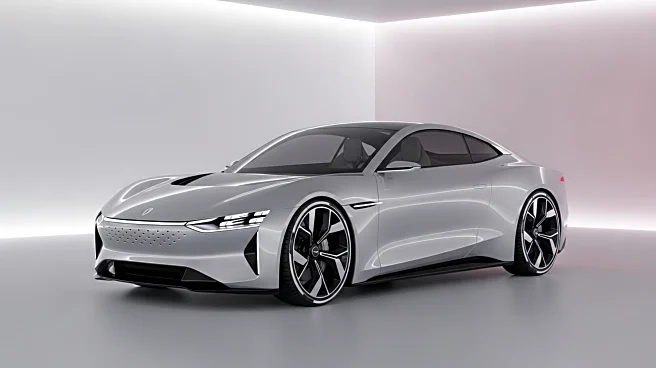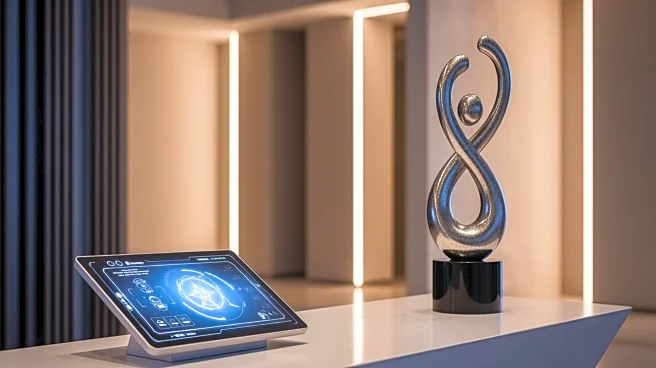What is the story about?
What's Happening?
Volkswagen has engaged Italdesign, an Audi subsidiary, to create a design concept for an electric coupe, known as the EVX Project. This initiative is a design exercise exploring the potential of a 2+2 coupe on the MEB+ platform, which is primarily intended for front-wheel-drive vehicles. The EVX concept features a coupe design that is slightly smaller than the Range Rover Evoque, with dimensions of 166.5 inches in length and 71.6 inches in width. The design includes a rear that resembles the Toyota C-HR, although it is lower than the Evoque. The EVX is showcased as a hologram at the IAA Mobility show in Munich, highlighting Italdesign's active role within the VW Group.
Why It's Important?
The collaboration between Volkswagen and Italdesign signifies VW's interest in expanding its electric vehicle lineup, although the EVX remains a conceptual design. This project reflects VW's exploration of new design possibilities and its commitment to innovation in the electric vehicle sector. While the EVX is not slated for production, it demonstrates VW's willingness to experiment with design and technology, potentially influencing future models. The project also serves as a strategic move to enhance VW's image post-Dieselgate, showcasing its focus on sustainable and innovative vehicle solutions.
What's Next?
Volkswagen's focus remains on hatchbacks and crossovers, with no immediate plans to produce the EVX. However, if Porsche and Audi's performance EVs succeed, VW might consider developing an entry-level sports model. The EVX concept could inspire future designs, but for now, VW is concentrating on marketable models like SUVs and hatchbacks. The EVX's design exercise may lead to further collaborations with Italdesign, potentially influencing VW's future electric vehicle strategies.
Beyond the Headlines
The EVX Project highlights the cultural shift within Volkswagen towards embracing electric vehicle technology and innovative design. This move could signal a broader trend in the automotive industry, where traditional manufacturers explore new design paradigms to stay competitive. The project also underscores the importance of design exercises in shaping the future of automotive aesthetics and functionality.















